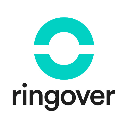Cloud Phone System: How To Choose The Right Solution For Your Business

Cloud Phone Systems offer businesses more agile and affordable solutions to better serve customers and be more productive.
In this article, we will guide you through what a cloud phone system can do for your business, how it works and how to choose one.
What Is A Cloud Phone System?
A cloud phone system is a Voice over IP (VoIP) based business telephone platform that is hosted by a third-party provider. Cloud phone systems typically offer advanced security and telephony features such as: extension dialing, auto attendants, and conference bridges.
5 Reasons Why Companies Should Use A Cloud Phone System
Mobility
With remote working on the rise, Cloud phone systems allow employees to make and receive calls easily, manage voicemails, and access other telecommunication features from any device and any location as long as they have access to the internet.
Flexibility to Scale
Businesses need to be able to scale up and down easily. As they need to hire new employees, open new offices, and welcome new customers, cloud phone systems offer businesses greater flexibility with their telecommunication tools. They can add as many extensions as needed to handle increased call volume and, when necessary, simply deactivate these additional extensions.
Cost Efficiency
Cloud phone systems help businesses save money on their telecommunications, especially since cloud phone systems include multiple tools and solutions in one platform. With cloud-based phone solutions, businesses can benefit from monthly prices that include business calls, texts and many more features.
Increased Productivity
Benefitting from multiple functions in one platform and using advanced call features help teams better manage projects. Team members don’t need to jump from one platform to the other anymore as cloud phone systems streamline processes and ease daily workflows, making teams happier, more productive, and more able to satisfy customers.
Reliability And Security
The best cloud phone system providers make sure to maintain and update their solution to keep it optimal and protected from cybercrime. Some of them help reduce the risk of missing a call due to outages or other disruptions by providing backup solutions that are available at all times.
Most Useful Cloud Phone System Features
Flexible Accessibility
When choosing your provider, you should always make sure the system is accessible from different devices (desktop, tablet, smartphone…) through well-thought apps that really meet your business needs.
Call Analytics
Some metrics give you crucial information regarding employee efficiency and customer engagement. Choosing a cloud phone system that offers a call analytics feature will help you make better decisions and enhance customer satisfaction.
Virtual Voicemail
Virtual voicemail makes it easy to access voicemail as it sends the audio files and/or automated transcriptions directly to users via email. This feature also makes it easier to forward voicemail to other team members in order for the inquiry to be addressed promptly.
Integration
Being able to integrate your system with other tools can help your teams improve productivity and offer a better customer experience.
Good integrations include:
- CRMs (customer relationship management)
- Email exchanges
- Instant messaging platforms
Video Conferencing
Good video conferencing features provide businesses with a wide range of tools to easily communicate with team members or hold online meetings with clients and colleagues: product demonstrations, business negotiations, presentations, training sessions, job interviews…
Customer Callback
Customer callback eliminates the need for customers to wait on hold as customers can fix a date and time to receive a callback from an agent. Customer callback greatly improves the customer's experience and reduces call abandonment rates.
FreshCaller
Freshcaller is a Freshworks VoIP platform that offers cloud-based calling features to businesses. It is an easy-to-start, fully-capable VoIP provider that makes it easy for medium-sized businesses, and startups to build a well-capable customer calling infrastructure and execute the requirements of their customer support. It can also scale to large organizations. Freshcaller’s intuitive use and easy onboarding make this system ideal for beginners.
Features
- Auto & Predictive Dialers:
- Voice Recognition
- Call Monitoring
- Reporting & Analytics
- VoIP Integration
- Number Management
- Contact List
- Mobile Apps
- Business hours
- Live Dashboard
- Call Queue
Pros & Cons
Pros
- Lightweight
- Runs on any device
- Stable
- Works all over the world
- Records calls
- Comes with a sales module
- Aggregates data to a single dashboard
- Capable of growing
- Tracks performance
- Integrates with all kinds of phone hardware
- Lets users hide unused features
- Integrates with sales software
Cons
- Customer support primarily focused on documentation
- Easy onboarding but takes a bit of time to configure
- Customer support isn't available around the clock
- Interface is slightly clunky
- Looks slightly dated
- More features accessible from dashboard would be useful

Freshdesk Contact Center
8x8
8×8 is a business phone system that integrates video conferencing, instant messaging, and phone calls into a singular platform. It is a great value option for small and medium-sized businesses. Its entry-level Express plan offers a great mix of pricing and features for small businesses that need a reliable phone system with modern call management tools. For large or enterprise-level companies, there are more cost-effective options out there than 8×8.
Features
- Cloud PBX
- Voicemail Transcription
- Real Time Monitoring and analytics
- Multi-User Collaboration
- File Transfer
- Contact Database
- Call Conferencing
- Activity Tracking
- Customizable Reports
Pros & Cons
Pros
- Annual price plan savings
- Integrations to streamline your workflows
- Call monitoring for training
- Businesses can mix and match plans to support each employee efficiently
- The setup process is quick and offers easy-to-use call management features
- International calling to 14 countries, some plans offer unlimited voice calling to 48 countries
- Secure and compliant certifications to protect data
- Taking, making, and transferring calls is very straight-forward
Cons
- Issues with canceling
- Bad customer service
- Phone app crashing
- Does not update automatically
- No mass SMS texting for marketing to clients

8x8
Nextiva
Nextiva is a business communications platform that focuses on helping businesses grow faster with a reliable unified communications system. It provides a VoIP solution, CRM software, BI software, cloud storage, phone and device rentals, email marketing automation software, and a contact center solution all in one platform. These products can be purchased individually or together. Pricing goes down for more users, which means that as you grow your team, you will pay less per user for your phone service.
Features
- Cloud PBX (More on what Cloud PBX is over there)
- Call Pop feature
- Call Management
- VoIP System Collaboration
- Auto-Dialer
- Automated Attendant
- Automatic Call Distribution
- Call Queues
- Screen Sharing Option
- Process/Workflow Automation
- Real-time Consumer-facing Chat
- Employee Directory
Pros & Cons
Pros
- Most complete phone system: offers multiple products depending on your needs
- Reliable
- Good customer service
- Call Pop feature is great (shows key caller details)
- Great analytic features such as the Sentiment Analysis feature that recognizes positive and negative “trigger words”
Cons
- Low integration with third-party services
- Documentation on their website needs an update
- Mobile app can be glitchy at times
- More touch screen options could be useful

Nextiva Call Center
RingCentral
RingCentral is a unified cloud-based business phone system that delivers team messages, video conferences and phone calls through one easy-to-use and secure platform. It can meet the needs of companies of all sizes. Just note that while the Essentials plan is the most popular of their plans, the Premium plan is the best value.
Features
- SMS and MMS Texting
- Chat Messaging
- Team Collaboration
- Video Calling
- Integrations with Third Party Tools
- Multi-level IVR
- Voicemail and Greeting
- Internet fax
- Audio & Video Conferencing
- Cloud PBX
- Auto-Receptionist
- Call Recording & Forwarding
Pros & Cons
Pros
- High-quality calls
- Free trial
- Call recording
- chat feature for staff
- mobile access: apps for Mac, iOS, and other platforms
- constantly improving over time
- Open API, integrates with more than 2,000 popular business software applications and tools
- Multi-platform communication tools
Cons
- Contact management could be improved
- Not easy to set up
- Can be quite complicated to use for new users
- Caller ID with info should be available across all levels of service
- Delays
- You may have to wait quite some time for customer service
- More competitive pricing

RingCentral Centre de Contact
Vonage
Vonage is a communication solution aimed at small-midsize companies. It includes IP-PBX capabilities, great audio call quality, unlimited calling and texting, and integrates with third-party applications. Vonage allows technically savvy businesses to customize communications for their unique business requirements. It offers three unified communications plans, including Mobile, Premium and Advanced that are worth checking out. You can even explore Vonage’s features for free thanks to Vonage’s 14-day free trial.
Features
- Virtual Receptionist
- Phone Number Verification
- Customizable Call Routing
- Traffic Prioritization
- Call Monitoring
- Call Recording
- Launch a Contact Center
- Video Conferencing
- High-Quality Messaging
- Elevated Quality of Service
- High-Quality Voice
- Mobile and Desktop Apps
Pros & Cons
Pros
- Unlimited calling and texts
- Easy setup and user-friendly interface
- Great voice quality
- Unlimited team messaging
- Pretty reliable
- Scales without limitations
- The mobile app is easy to use
Cons
- Many add-on fees for features built into other VoIP provider plans
- Customer service could be better
- Limited video conferencing features
- Small meeting capacity for audio and video conferences
- Improved call history would be useful
- There can be a slight delay in the audio at times

Vonage Business
Ooma
Ooma is an affordable and easy-to-use business communication system that offers solutions for SMBs and enterprise-level businesses alike. It provides toll-free numbers, fax extensions as well as advanced voice and collaboration features that are flexible and scalable in order to communicate seamlessly. Ooma is a pretty good solution for those who want a simple, straightforward VoIP system without a contract.
Features
- Ooma Meeting Video Conferencing (25 participants)
- Screen Sharing
- Desktop App
- Enhanced Call Blocking
- Call Info Match
- Call Analytics
- Advanced Call Logs
- Voicemail Transcription
- Ring Groups
- Music on Hold, Transfer Music
- Virtual receptionist
- Call Recording
- Automatic Call Distribution
- Live Chat
- Multi-User Collaboration
Pros & Cons
Pros
- 24 hour support, good customer service
- Unlimited calling
- Competitive monthly pricing
- Full-featured mobile app
- Easy setup, easy to use
- Voicemail to email capability
- No contract required
- Supports analog phones
- Mobile App (iOS and Android)
- Virtual assistant
Cons
- Limited basic features
- Wi-Fi requires add-on
- Improved headset connectivity
- Cannot track call duration
- Limited integrations
- Limited messaging options
- Caller ID function could be improved
- Better spam filtering needed

Ooma
Dialpad
Dialpad is a relatively new web application that aims to help businesses of all sizes improve customer support and team collaboration. It allows businesses to easily communicate with clients, employees as well as other organizations. Dialpad is intuitively designed, scalable to your needs, and comes with integrations to further the software’s functionality. Despite being new in the market, Dialpad is a great cloud phone system.
Features
- Simultaneous Ringing
- Call Recording
- MMS, Messaging, Fax
- Three-Way Calling
- IVR Recognition
- Contact Management
- Conversation Insights
- Company Directory
- Group Messaging
- Inbound Reporting
- Data Integration
- Call Monitoring
- Voice Recognition
- Visual Voicemail
- Peer-to-Peer HD Video
Pros & Cons
Pros
- AI-based voice intelligence on all plans
- 100% uptime service-level agreement
- Very easy to use interface
- Affordable
- Innovative
- clear and reliable
- Useful and smooth integrations with Google Workspace and Microsoft Outlook
- Multiple-channel communication
- accurate transcriptions
Cons
- Not available worldwide
- No 24/7 support on Standard plan
- Video conferencing is limited to ten participants with lowest level plan
- Voicemail transcripts could be improved
- More integrations into Google G Suite would be great
- Customer Support can be difficult to get a hold of

Dialpad
Jitsi
Jitsi is a bit different from other systems in this list. It is an encrypted open-source video conferencing app that allows you to easily build and deploy secure video conferencing solutions. It is mainly composed of Jitsi Videobridge and Jitsi Meet, which let you have conferences on the internet, but other Jitsi projects enable extra sets of features such as audio, dial-in, recording, and simulcasting.
Features
- Android and iOS Apps
- Text Chatting (web only)
- Separate Rooms Locked With Password
- Screen Sharing
- Streaming a Conference To YouTube Live (if Jibri is configured)
- Shared Text Document Based On Etherpad
- Participant Talk-time Statistics
- Push-To-Talk Mode
- Play A YouTube Video To All Attendees Call
- Audio-Only Option
- Telephone Dial-in To A Conference (if Jigasi is setup)
- Dial-out To A Telephone Participant (if Jigasi is setup)
- Integration With Other Apps
Pros & Cons
Pros
- Open Source
- Entirely free conferencing
- Unlimited time
- Scalable
- Inexpensive
- Customization on top of the base product
Cons
- No virtual whiteboard
- Stability and bandwidth issues at times
- Can be a bit bulky to use for newcomers
RingOver
Ringover is a professional cloud phone solution designed for companies of all sizes. It is particularly suitable for customer services and sales teams. This system provides an easy-to-use telephony platform, a simple interface, and advanced features businesses can use to better manage their cloud VoIP contact center.
Features
- Unlimited incoming and outgoing calls in 80 countries
- Sending and receiving texts, chat, fax, and voice messages
- Desktop & Mobile app
- Instant messaging for team members
- Management of availability schedules (opening hours)
- Reception with interactive navigation voice switchboard
- Dashboards and phone usage reports
- Call integration with your CRM
- Call forwarding to available collaborators
- Plug-and-play integrations with Salesforce, Zoho, Pipedrive, Zendesk, Zapier, and Hubspot
- Video conferencing and whisper technology
- Screen sharing.
Pros & Cons
Pros
- Integration with CRMs such as Zoho, Zapia, and Zendesk
- Crisp and clear call quality
- Intuitive user and well laid out interface
- Users can easily synchronize the desktop version to the mobile apps
- Instant activation of new lines
Cons
- Some users experience difficulty with call connections
- The pricing could use more options for flexibility

Ringover
Aircall
Aircall is a cloud-based call center software that integrates with popular CRMs and Helpdesk tools. It is designed to help sales and support teams of more than 3 users communicate clearly and efficiently. It is an ideal solution for businesses with virtual offices located overseas or remote teams as their team members can communicate easily. It is also an excellent solution to reach out to customers wherever they may be.
Features
- Multi-level Interactive Voice Response (IVR)
- Call reports
- After-call work
- CRM and helpdesk tools integrations
- Directory of employee names
- Call recording
- Call monitoring
- Click to Dial
- Message alerts
- Call screening
- Answering rules
- Audio conferencing
- Mobile app for iOS and Android
Pros & Cons
Pros
- Easy to use
- Easy set up
- Very quick to get a line working
- Call tracking and supervision
- One-click integrations with plenty third-party software
- Local, toll-free, and international numbers in over 100 countries
- Call recording comes standard with all Aircall plans
Cons
- Quite expensive
- Very often needs updates
- Requires a minimum of three users
- May not work with existing desk phones

Aircall
Final Thoughts On Cloud Phone Systems
We can see many reasons why businesses should opt for agile and affordable solutions like cloud phone systems to work smarter and better serve customers. If you need even more affordable VoIP services, we've got you covered with our list of the cheapest VoIP services.
The cloud phone systems we have tested and analyzed for this article all offer their own sets of features and functionalities that could be very interesting for any business looking for more flexibility, reliability, and cost-efficient solutions to improve team productivity. If you want to read more, you can also check out our article on VoIP tools for small businesses.